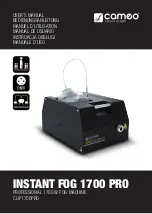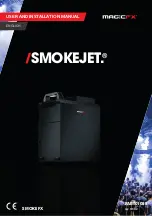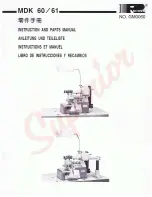
Raising and Lowering the Presser Foot
The presser foot lifter raises and lowers the presser
foot.
You can raise it about 0.6 cm (1/4˝) higher than the
normal up position for easy removal of the presser
foot, or to help you to place heavy fabric under the
foot.
1.
Lowered position
2.
Raised position (Normal)
3.
Highest position
Balancing Thread Tension
Auto tension
This machine features the Auto setting in the tension
control, which covers wide range of sewing condition.
Set the tension control dial at “ Auto ” for general
sewing, unless specifically indicated in this manual.
Manual tension adjustment
Manual tension adjustment may be needed depend-
ing on the sewing materials, layers of fabric and other
sewing conditions.
1.
Thread tension dial
2.
Setting mark
3.
Needle thread
4.
Bobbin thread
5.
Right side of the fabric
6.
Wrong side of the fabric
[1]
Correct tension:
The ideal straight stitch has threads locked between
two layers of fabric.
For an ideal zigzag stitch, the bobbin thread does not
show on the right side of the fabric, and the needle
thread shows slightly on the wrong side of the fabric.
[2]
Needle thread tension is too tight:
The bobbin thread will appear on the right side of the
fabric.
Loosen the needle thread tension by moving the dial
to a lower number.
[3]
Needle thread tension is too loose:
The needle thread will appear on the wrong side of
the fabric.
Tighten the needle thread tension by moving the dial
to a higher number.
9
0
Auto
4
3
2
6
5
4
[1]
[2]
[3]
1
2
3
1
2
4
3
5
6
5
3
4
1
2
6
5
3
4
1
6
2
8
Summary of Contents for 6125QC
Page 1: ...INSTRUCTIONBOOK...











































